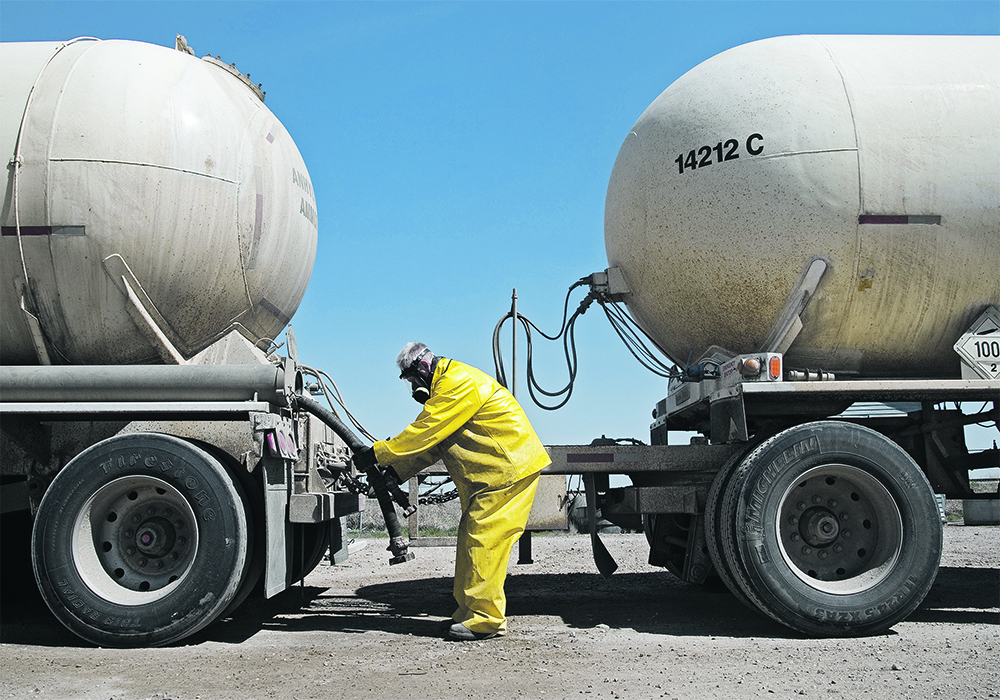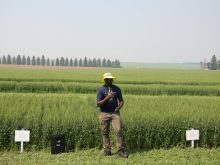FRANKFURT, Germany (Reuters) — Germany’s BASF, the world’s largest chemical company, is cutting ammonia production further due to soaring natural gas prices, it said July 27, with potential ramifications from farming to fizzy drinks.
Germany’s biggest ammonia maker, SKW Piesteritz, and number four Ineos also said they could not rule out production cuts as the country grapples with disruption to Russian gas supplies.
Ammonia plays a key role in the manufacturing of fertilizer, engineering plastics and diesel exhaust fluid. Its production also yields high-purity carbon dioxide (CO2) as a byproduct, which is needed by the meat and fizzy drinks industries.
Read Also

More factors affecting winter weather
When you combine a weak La Niña, early Siberian snow, and a warm northern Pacific, it’s easy to see why long-range winter forecasting is so complex.
“We are reducing production at facilities that require large volumes of natural gas, such as ammonia plants,” BASF chief executive officer Martin Brudermuller said in a media call after the release of quarterly results.
He added BASF would purchase some ammonia from external suppliers to fill gaps but warned farmers would face soaring fertilizer costs next year.
Production lines for raw material syngas, a mixture of carbon monoxide and hydrogen, and basic petrochemical acetylene were also candidates for cutbacks to save on gas, he said.
Unlike many European countries, Germany has no liquefied natural gas (LNG) port terminals to replace Russian pipeline gas. That means companies are under political and commercial pressure to reduce gas intensive activities if gas deliveries are cut further.
BASF cut ammonia output at its headquarters in Ludwigshafen and at its large chemical complex in Antwerp, Belgium, in September.
Fertilizer giant Yara, which runs Germany’s third-largest ammonia production site in the northern town of Brunsbuettel, said its output across Europe was currently 27 percent below capacity due to the surge in gas prices.
It would not specify the Brunsbuettel rate, but added the site does not deliver any high-purity CO2.
SKW said it was in the process of resuming full production after a scheduled maintenance shutdown but the future capacity utilization rate was difficult to predict.
Chemical companies are the biggest industrial natural-gas users in Germany and ammonia is the single most gas-intensive product within that industry.
Companies that reduce ammonia production may lose market share to imports from overseas suppliers with access to cheap gas, or in Germany might accept compensation payments under a potential gas rationing programme to encourage manufacturers to quickly scale back production to balance out supply cuts.
Most ammonia goes into nitrogen fertilizers but other uses include diesel exhaust fluid AdBlue and engineering plastics.















